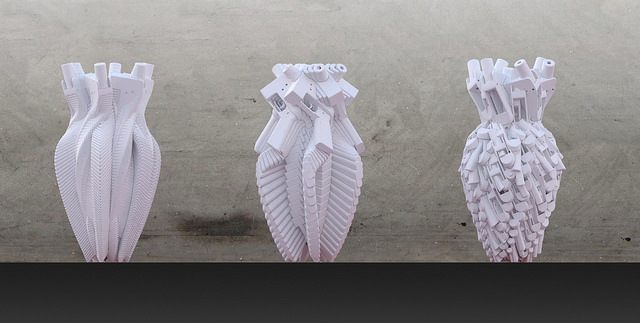3D-Printed Plastic Guns: Five Reasons to Worry
This week saw law and common sense unite in opposition to the widespread availability of dangerously untraceable, undetectable guns.

Published by The Lawfare Institute
in Cooperation With

This week saw law and common sense unite in opposition to the widespread availability of dangerously untraceable, undetectable guns. A federal judge in the state of Washington issued an order barring the State Department from allowing Defense Distributed, a self-described “private defense firm,” to make the blueprints for 3D-printed plastic guns freely available on the internet. The judge’s order may not eradicate the threat posed by Defense Distributed’s attempt to widely share recipes for lethal violence, given that the blueprints have—regrettably—already found their way to certain corners of the internet. But it’s an important step, both for protecting citizens at home and abroad from gun violence and for reasserting the rule of law.
The State Department’s International Trafficking in Arms Regulations sensibly ban the “export” of technical data, i.e. blueprints, related to the design, manufacture and assembly of certain firearms. Because publishing those blueprints online would make them available worldwide, such publication was an “export” prohibited under the regulations until last month, when the government dramatically reversed its legal position. After successfully defending the regulations against a lawsuit brought by Defense Distributed several years ago to permit it to publish the blueprints—arguing that the blueprints’ publication was protected by the First Amendment—in July 2018, the government abruptly settled the lawsuit by agreeing to change State Department regulations and authorizing the company to publish the blueprints while the regulatory change is pending. It even agreed to pay Defense Distributed $40,000.
This unexpected about-face caused an immediate outcry from federal and state elected officials, law enforcement, and even the president, who tweeted:
I am looking into 3-D Plastic Guns being sold to the public. Already spoke to NRA, doesn’t seem to make much sense!
— Donald J. Trump (@realDonaldTrump) July 31, 2018
On the eve of the planned online publication of the blueprints, Judge Robert S. Lasnik issued an order temporarily banning the online posting of the blueprints in response to a lawsuit brought by the State of Washington (and now joined by 19 other states and the District of Columbia). This week, he extended that order by granting a preliminary injunction.
But that will not end the lawsuit, and it appears that Defense Distributed’s owner, Cody Wilson, will do just about anything he can to sidestep the ban. The day after the judge’s order this week, Wilson began selling the blueprints through his website, offering to ship them on thumb drives or by email. He claims he can do this without violating the court order as long as he sells them only in the United States.
Make no mistake: Cody Wilson’s primary motive is not to vindicate what he believes to be his First Amendment rights. That argument is window dressing for his real goal: to put guns into the hands of every person who wants one. Speaking about the horrific shooting at Marjory Stoneman Douglas High School in Parkland, Fla., last February that left 17 people dead, Wilson stated, “All this Parkland stuff, the students, all these dreams of ‘common sense gun reforms’? No. The internet will serve guns, the gun is downloadable. No amount of petitions or die-ins or anything else can change that.” And in a new video that Wilson has shared over social media to raise money for his legal fees, he unabashedly references violence, warning, “Riflemen, this fight is yours and it’s time to muster.” This is entirely consistent with his threats from 2016, when he was concerned that Hillary Clinton would win the presidency and crack down on firearms: “I’d call a militia out to defend the server, Bundy-style,” Wilson told Wired. “Our only option was to build an infrastructure where we had one final suicidal mission, where we dumped everything into the internet.”
There are many reasons for alarm, as I explained in an expert declaration filed in the states’ lawsuit. First, a plastic firearm would rarely be detectable by metal detectors, which are the standard public safety protocol at airports, stadiums, concert halls, public buildings like courthouses, and, increasingly, schools. Although the federal Undetectable Firearms Act requires guns to include enough metal to set off a metal detector, the requirement can be evaded easily by simply not including the non-operable piece of metal in the 3D-printed gun. And for those who say that plastic firearms are ineffective because of their propensity to blow up, a 2013 test by the Bureau of Alcohol, Tobacco, Firearms and Explosives of Defense Distributed’s 3D-printed handgun, the “Liberator,” showed it fired without fail all eight times it was tested.
Second, plastic firearms manufactured on 3D printers in one’s home without serial numbers would be entirely untraceable by law enforcement. Countless crimes are solved in the U.S. every year through successful firearms traces, which can identify the first purchaser of a gun. As I saw countless times over the course of my decades as a federal prosecutor, firearms traces often led to information relevant to solving violent crimes even if that first purchaser is not the perpetrator, including by revealing “straw” purchasers—those who purchase a gun for someone who is legally prohibited from doing so himself. Firearms traces can also help discern meaningful patterns in gun trafficking.
Third, worldwide availability of the blueprints for printing plastic guns means that would-be terrorists could make undetectable and untraceable firearms for use against Americans here in the homeland. Foreign terrorists might manufacture guns abroad and smuggle them into the U.S. for a terrorist attack here. Or they might travel to the U.S. for the purpose of manufacturing weapons and launching such an attack.
In my experience as the acting head of the National Security Division of the Department of Justice, I was well aware of calls by foreign terrorist organizations such as al-Qaeda and the Islamic State for the commission of terrorist acts with firearms on U.S. soil. The shootings at Orlando’s Pulse Nightclub and in San Bernardino, Calif.—for which the shooters pledged allegiance to Abu Bakr al-Baghdadi, the head of the Islamic State—are two deadly examples. And we’ve certainly seen just as frightening and lethal domestic terrorism and hate-motivated crimes using firearms—the Charleston church shooting, for example—which could be expected to increase with the additional option of undetectable guns.
Fourth, the online publication of 3D-printed gun blueprints could cause destabilizing effects in foreign countries by making guns readily accessible to armed insurgent groups, transnational criminal organizations, and ordinary street criminals—thus harming U.S. relationships with those countries, especially with allies that have much more restrictive firearms laws than ours. The blueprints also would be available to foreign countries subject to U.S. or U.N. arms embargoes, such as North Korea and Iran, undermining global export control and non-proliferation regimes.
Finally, existing laws and regulations for the manufacture and sale of firearms do not protect Americans from the above-mentioned threats. The U.S. regulatory scheme is built on the premise that firearms production and distribution requires an investment of resources that makes such production feasible only for commercial entities, which must comply to maintain their licenses. The wide availability of gun blueprints and decreasing cost of 3D printers upends this regulatory regime. And, of course, the private manufacture and sale of guns bypasses background checks entirely.
It’s unfortunate that some gun-making blueprints already have made their way onto the internet, but that’s no reason not to take steps now to halt the spread of technical data that, in the wrong hands, will be deadly. A federal judge has already done his part to ensure that applicable laws are followed. While the lawsuit is working its way through the court system, federal and state legislators should be getting to work as well.
Note: The author’s views are her own and she does not represent the States that have filed suit against the State Department and Defense Distributed.


.jpg?sfvrsn=8253205e_5)


